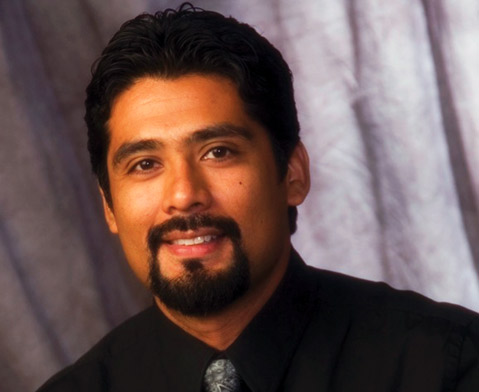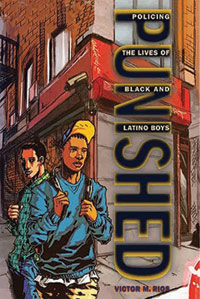Understanding Punished Youth with Victor Rios
UCSB Sociologist Looks at the Causes of and Solutions for Youth Delinquency

Why do poor kids join gangs, break laws, beat each other up, and wind up dead or in prison? For these questions, which have plagued urban America for the past 30 years, there’s no shortage of theories. But a UCSB sociologist may have finally found some actual answers, and, better yet, the resulting solutions aren’t as complicated as you might expect.
“[Mine is] a very simple argument: Genuine human contact with people in mainstream institutions makes a world of difference,” explained Victor Rios, asserting that sweeping changes, new bureaucrats, or expensive programs aren’t the solution. “We have the capacity. There are enough adults and professionals out there who care. We don’t have to hire more people or add additional hours to a teacher’s or a cop’s schedule. We have to change the interaction.”

That might seem trite if it weren’t coming from Rios, a former hardcore gangbanger from Oakland who watched friends get shot and killed before he managed to escape the cycle of death and imprisonment to graduate from college, the only one of his 68 homies to do so (today, only a dozen are engaged in what might be considered respectable work).
During grad school at UC Berkeley, Rios moved back to the ‘hood to conduct an exhaustive and intense three-year study of more than 100 teenage blacks and Latinos. Many were already deep in gangs, most were at or below the poverty line, and all were regularly brutalized by cops, alienated by teachers, and cast aside by probation officers in a pattern of punishment that spiraled into lives of crime. This week, Rios’s results were published in his book Punished: Policing the Lives of Black and Latino Boys, an academic text that blends engaging narrative tales of urban East Bay life with solid research and thought-provoking commentary.
“For thousands of years, adolescents had these rites of passage,” said Rios, explaining that those sorts of rites still exist in a positive way for upper- and middle-class kids, whether it’s summer camps or college fraternities. “Poor kids lack the ability to have positive rites of passage, so they create their own.” Meanwhile, since the modern “crime-fighting binge” began in the 1980s, society has changed the way that delinquent youths are dealt with, shifting inner-city schools into more prison-like settings and empowering police to engage in the “dignity stripping” of kids who are perceived, often incorrectly, to be troublemakers.
When he arrived at UCSB as a professor in 2006, Rios figured he’d be studying gangs in Los Angeles, but then the fatal stabbing went down outside of Saks on State Street in March 2007, so he dove headfirst into Santa Barbara’s teenage underworld to begin researching for his next book. Three years later, he’s found that while our delinquent youths tend to be less violent, the community is guilty of subjecting them to the same counterproductive punitive posture—from outright brutality and entrapment on the streets to more subtle subversions in the classroom—that he experienced as a kid on Oakland’s streets. That brings everyone of a certain class down, not just the actual bad seeds, and feeds the cycle of delinquency.
“I’m not saying that we should let kids get away with murder. I’m not saying that we should let kids get away with serious crimes. But as a society, let’s learn the difference between kids doing serious crime and kids trying to take a different path,” argued Rios, whose work was honored with UCSB’s Harold J. Plous Award last month. “We’re so caught up in catching the little fish that sometimes we let the sharks get away.”



